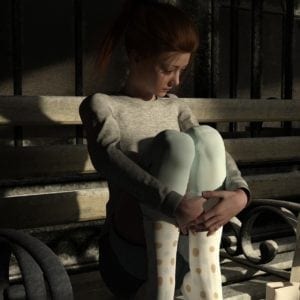According to a recent article, the author of the novel Breaking Free, Jan Rothney, shares the connections she has discovered between chronic fatigue syndrome and long covid.
Chronic Fatigue Syndrome (CFS)/Myalgic Encephalomyelitis (ME)
Myalgic encephalomyelitis (ME), also referred to as chronic fatigue syndrome (CFS), is a chronic, complicated disorder whose primary feature is extreme, seemingly unexplainable fatigue. The illness may also be commonly abbreviated as ME/CFS. The characterizing fatigue can worsen after physical and mental activity, but does not improve with rest. This fatigue seriously hinders the person’s ability to do normal tasks that were not a problem before getting sick. It can lead to serious lifestyle restrictions and make it difficult for patients to maintain a job.
ME/CFS can affect people of all ages and sexes, but it is most common in people between 30 and 50, and affects females more often than males. It is believed that ME/CFS is very underdiagnosed due to lack of education about the illness as well as limited access to healthcare.
Symptoms:
The severity of symptoms can fluctuate with time, some symptoms will come and go, and not every individual will have all the symptoms listed below. They include:
- Intense fatigue that isn’t helped by rest
- Inability to do simple activities (taking a shower, cooking, doing laundry) that were once doable, because of the fatigue
- Worsening of symptoms after an activity that wouldn’t have been a problem before getting sick
- Very low stamina
- Being confined to bed
- Problems with thinking and concentrating that might feel like a “brain fog”
- Dizziness
- Blurred vision
- Sleep problems
- Worsened symptoms when standing or sitting up
- Pain in muscles and/or joints
- Headaches
- Sore throat
- Swollen lymph nodes in the neck and/or armpits
- Depression
- Bowel dysfunction
Treatments:
ME/CFS treatment focuses on lessening whatever symptoms may appear. It includes:
- Avoiding overexertion
- Establishing good sleep habits
- Pain management
- Physical therapy focusing on forming a plan of what exercises are best for the patient
- Cognitive therapy
- Low doses of antidepressants
- Changes in diet
Jan Rothney’s Journey
Jan Rothney was diagnosed with CFS back in 2003. She was able to partially recover but suffered from a severe relapse in 2006. Rothney spent years trying to understand and maintain her disease, and now she lives a fulfilling life even with her diagnosis.
Writing Her Book
After years of trying to live with her disease, Rothney was able to find a way to manage her condition and lead a happy life. Rothney was formerly a health and social care lecturer, which led her to use her own journey to advise and aid others. She started a recovery course for CFS called Reset to Thrive which was very successful, along with writing a book that shared her journey in the hopes of helping others who are struggling with a CFS diagnosis.
The book, named Breaking Free, helps those suffering by sharing insights of Rothney’s journey with CFS. With long Covid symptoms being similar to those of CFS, the novel is more important than ever. These symptoms, such as exhaustion, brain fog, and decreased speech, can be exhausting and frustrating for patients to deal with. In addition, these symptoms are typically unpredictable, meaning a patient can feel fine one day and then crash the next day. This constant up-and-down makes the body believe it needs to be in fight mode, making it become almost too protective.
Despite how it may seem, it is possible to reach recovery with a CFS diagnosis. The most important step in convincing the body it does not need to be in an overprotective fight mode consistently. There are a few ways to do this, the most useful of which are known as STOP-THINK-GO techniques.
Tips from Jan
If you are suffering from either long Covid and/or CFS, Jan Rothney has a few top tips to improve your everyday life. These tips include remembering recovery is possible, not dwelling on setbacks, appreciating the good things no matter how small they may be, practicing the STOP-THINK-GO techniques regularly, get good rest, and try to maintain a positive attitude as much as possible.
If you want to check out Jan Rothney’s novel, you can find it here.








